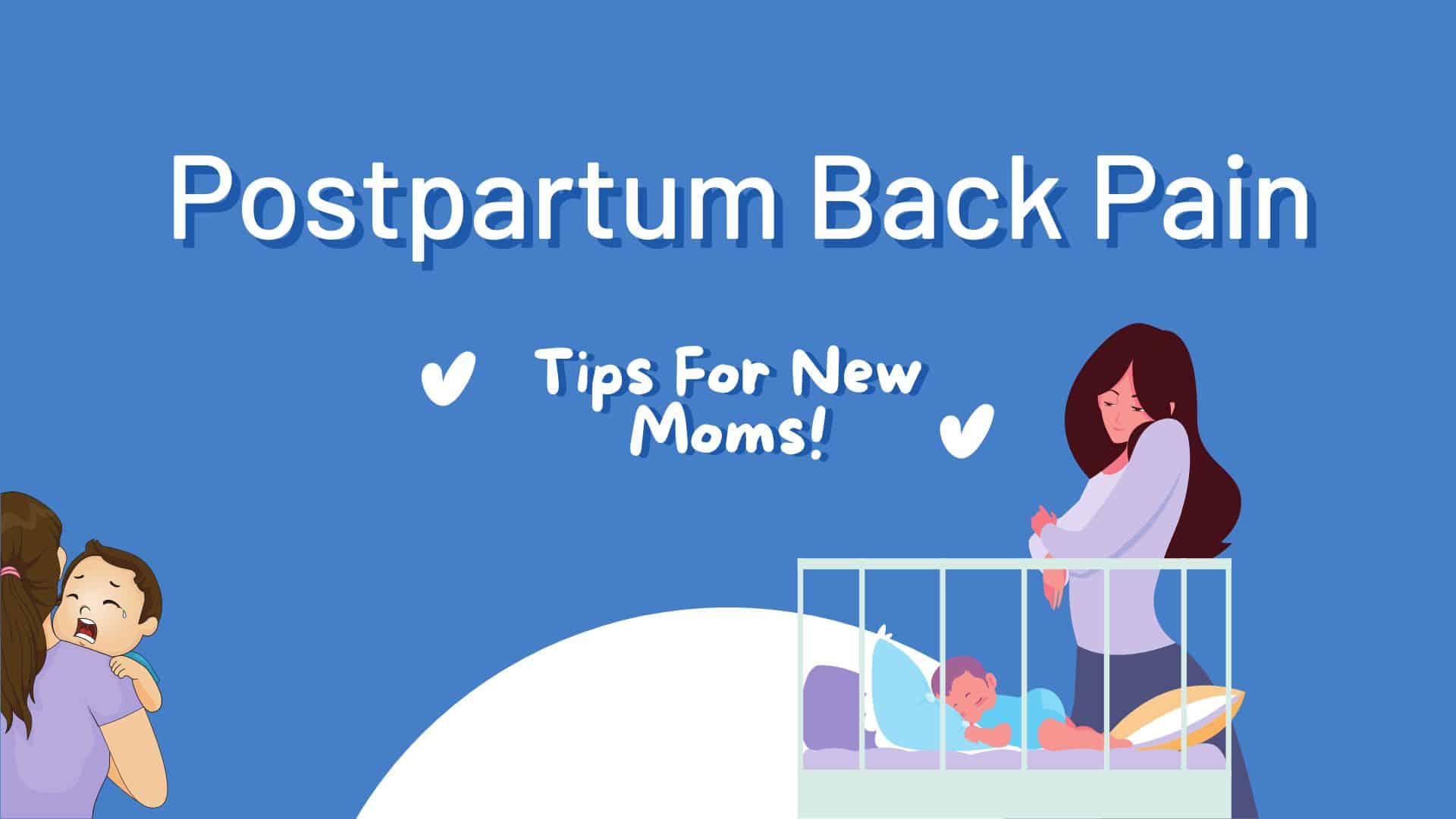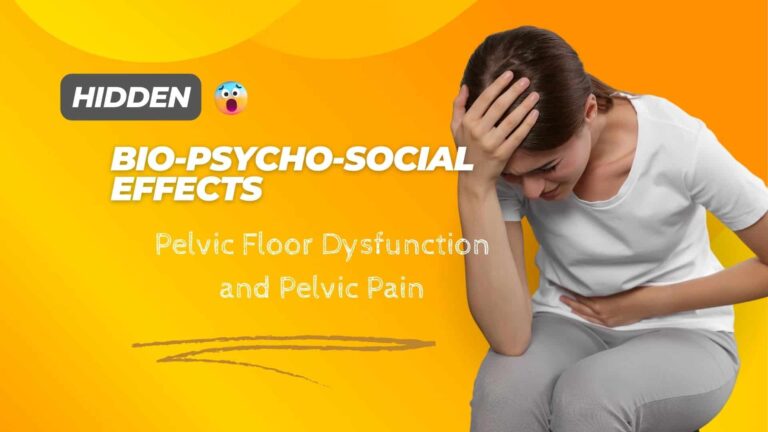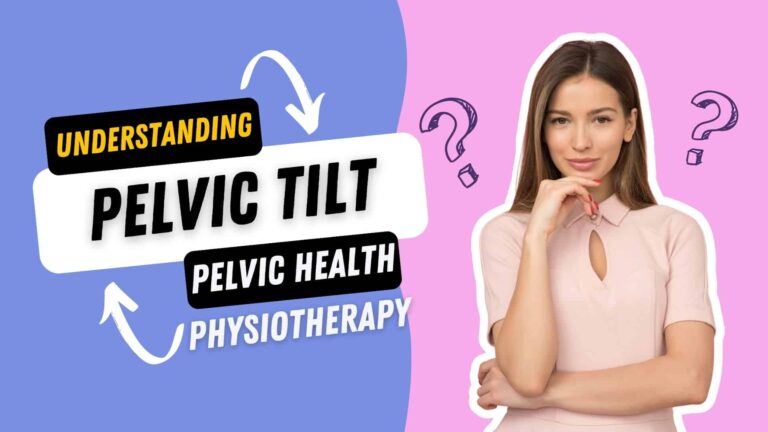Dealing With Postpartum Back Pain: Tips For New Moms!
Congratulations on becoming a new mom! As magical as this journey may be, it can also come with challenges. As a new mom, you may struggle with postpartum back pain – a common complaint that can make adjusting to motherhood even more challenging. This pesky issue often stems from hormonal changes, postural imbalance, and the physical strain of carrying your beautiful baby.
This discomfort not only affects your daily life but can also make caring for your little one more difficult than it has to be.
But fear not! Our comprehensive guide is here to help you understand the causes of this discomfort and provide tried-and-true tips for managing your newfound back pain, so you can focus on enjoying precious moments with your baby.
Key takeaways
- Postpartum back pain is a common issue faced by many new mothers, with almost 75% of women experiencing low back pain after delivery.
- Causes of postpartum back pain include hormonal changes, physical strain during vaginal delivery or C-section, weak core and abdominal muscles, improper exercise routine, stress, poor posture while caring for the baby, muscle imbalances and joint instability.
- Tips for managing postpartum back pain for new moms include gentle stretches and exercises, proper posture when lifting or breastfeeding their baby, and seeking medical attention if necessary.
- Other prevention tips include stress management techniques like relaxation exercises or meditation, proper hydration and nutrition.
- It’s important to prioritize self-care during this time to help manage the emotional stress that comes with adjusting to motherhood.
- A licensed physical therapist can work with you to identify the sources of your discomfort and create a customized treatment plan that includes targeted exercises, stretches, massage therapy, and other techniques to alleviate tension in your muscles and promote healing.
Learn more about our Pregnancy and Postpartum Physiotherapy.
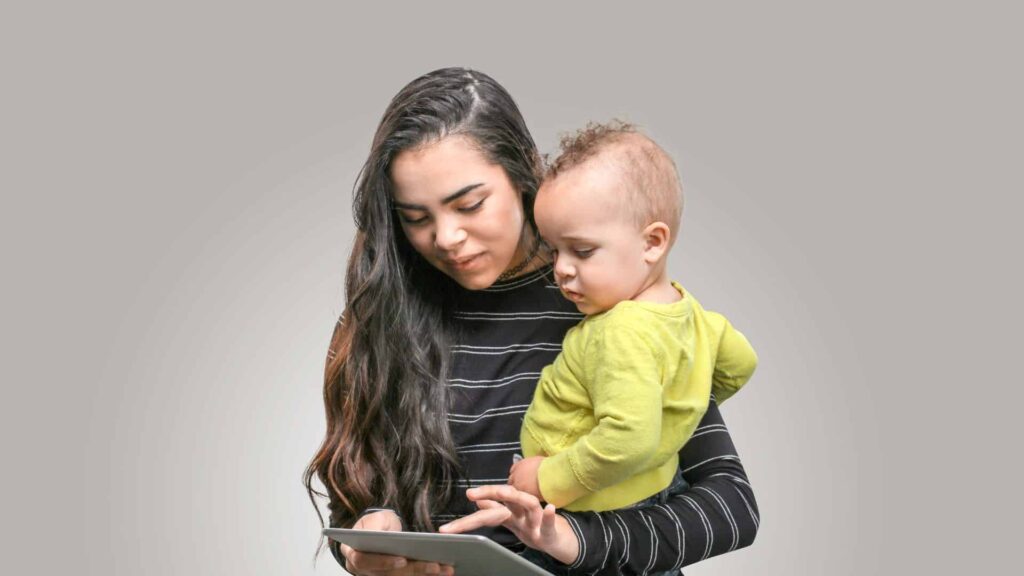
Understanding postpartum back pain
Postpartum back pain refers to lower and upper back pain experienced by women after childbirth and during the postpartum period. It is a common issue faced by many new mothers, with almost 75% of women experiencing low back pain during pregnancy can continue to have pain after delivery.
This discomfort can be attributed to an array of factors, including hormonal changes that loose ligaments and joints, as well as strained abdominal muscles due to the added weight and pressure experienced during pregnancy.
This, combined with strained abdominal muscles from carrying and delivering the baby, can result in significant discomfort during the postpartum recovery period.
For instance, one of my client struggled with severe postpartum back pain for several weeks after giving birth to her first child. She was surprised at how much more difficult her daily activities had become due to the constant ache in her lower back region.
During the consultation, she learned that maintaining proper posture while lifting her baby, breastfeeding, or even just sitting appropriately could help ease some of the pressure on her spine.
Dealing with postpartum back pain does not have to consume your life as a new mom. It’s important for new moms to understand that experiencing some level of postpartum back pain is normal; however, it shouldn’t be ignored or left untreated, as it could become chronic pain.

Duration of postpartum back pain
Postpartum back pain can last for weeks or even months after delivery. Almost half of new mothers report experiencing backache six weeks after childbirth.
While some women recover quickly from postpartum back pain, others may continue to feel discomfort up to six months after giving birth.
Causes of postpartum back pain
Experiencing postpartum back pain can be a frustrating and overwhelming experience for new moms, but understanding its causes can help you manage it more effectively. Some common factors include:
- Hormonal Changes
- Postural changes
- Enlarged breasts
- Extra weight during and after pregnancy
- Weak core and abdominal muscles
- Pelvic floor muscle dysfunction
- Physical strain during labour and delivery or C-section
- Baby weight during pregnancy and delivery
- Carrying the newborn baby for long periods of time
- Improper posture during breastfeeding
- Improper exercise routine
- Muscle imbalance and joint instability from weakened muscles
- Stress and lack of sleep
- The separation between the stomach muscles
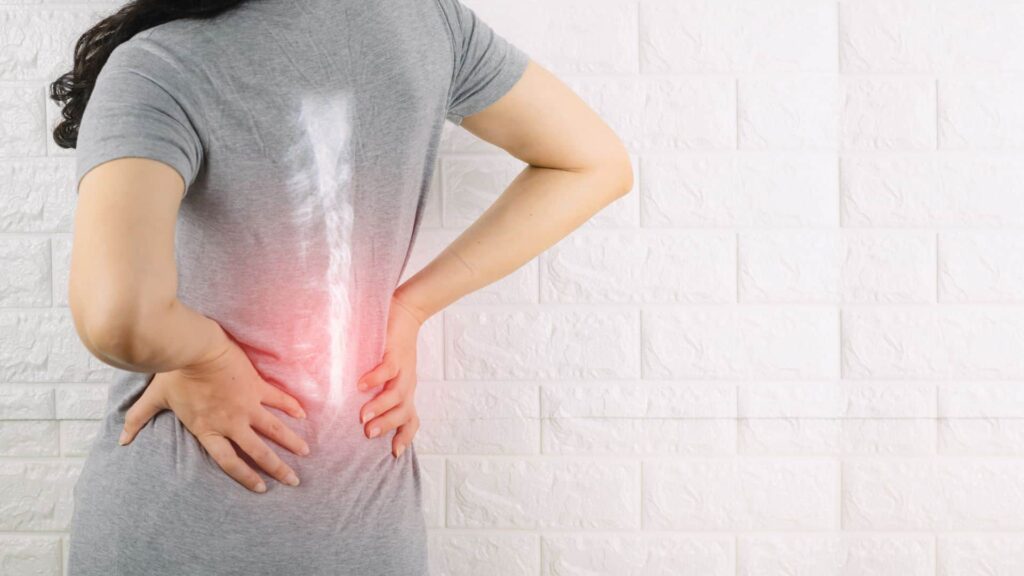
Common symptoms of postpartum back pain
Identifying the type of pain and recognizing the common symptoms can help new moms tackle postpartum back pain early on.
Identifying the type of pain
Postpartum back pain can be a dull ache, sharp shooting pains or spasms, and it may be located in different parts of your back.
Some women also experience sciatica, which is caused by pressure on the sciatic nerve and causes pain in the lower back that radiates down one leg.
Common Symptoms
- Persistent pain in the lower back, hip area and pelvic girdle
- Pain in the mid and upper back as well as neck pain
- Stiffness and tightness in the muscles of the affected area
- Pain that worsens when standing or sitting for prolonged periods
- Difficulty lifting objects or carrying the baby
- Numbness, tingling, or weakness in the legs or feet
- Pain that radiates down to the buttocks or thighs
Warning Signs
It’s important for new moms to know how to recognize warning signs associated with postpartum back pain. Here are some signs you should look out for:
- Chest pain or discomfort
- Obstructed breathing or shortness of breath
- Seizures or convulsions
- Numbness, tingling, or weakness in the legs
- Inability to move the legs
- Sudden and severe pain and headache
- Thoughts of hurting oneself or the baby
If you experience any of these warning signs or symptoms, seek medical attention immediately, as they may indicate a serious condition that requires urgent treatment.
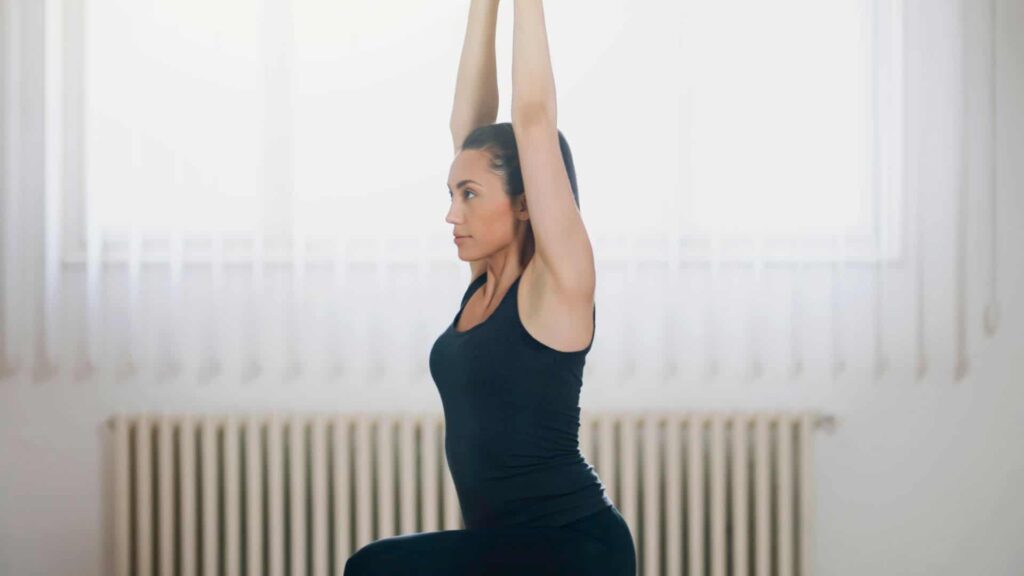
Tips for managing postpartum back pain for new moms
To prevent postpartum back pain, it is crucial to maintain good posture and body mechanics, practice regular stretching exercises, manage stress effectively, and stay hydrated – read on for more detailed tips!
Posture and body mechanics
Good posture and body mechanics are crucial for preventing postpartum back pain. Proper spinal alignment and ergonomics can help reduce stress on the lower back muscles, preventing muscle imbalances and joint mobility issues.
One way to practice good posture during breastfeeding is by using a supportive nursing pillow that elevates your baby’s head to chest level, reducing strain on your neck and shoulders.
Additionally, avoiding stooping over or slouching during breastfeeding or baby care can improve posture. Practicing proper techniques while sitting, lifting and carrying your baby is also important to prevent or reduce back pain.
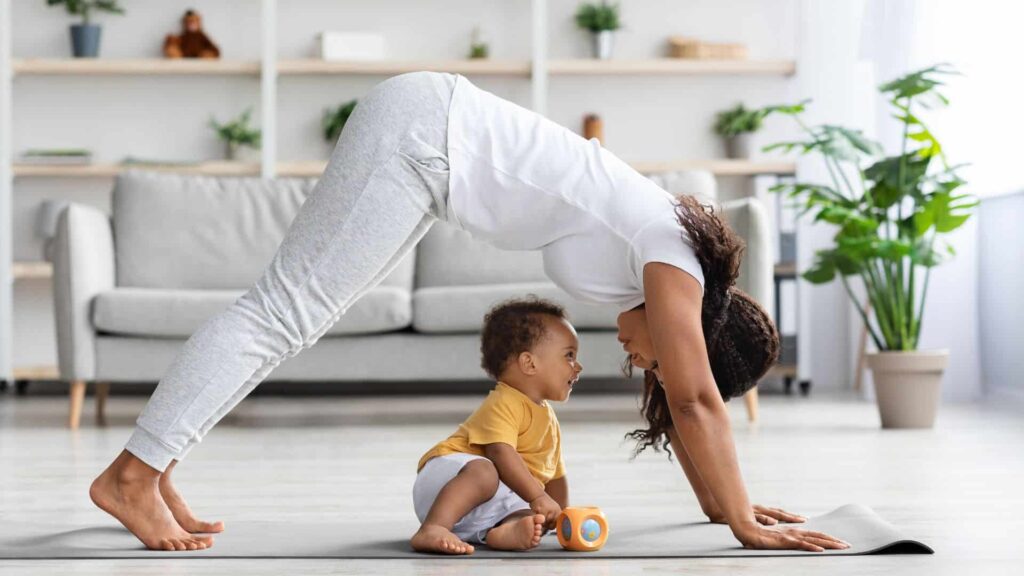
Regular exercise and stretches
Regular postpartum exercise can help prevent and manage postpartum back pain. Here are some tips to get started:
- Start slow and gradually increase the intensity of your workouts as you feel comfortable.
- Walking is a great, low-impact exercise that can help strengthen your core muscles and improve overall fitness.
- Gentle stretching exercises, such as back stretches, hamstring stretches, and hip flexor stretches, can be beneficial for relieving postpartum back pain.
- Yoga and Pilates classes can also be helpful for preventing or alleviating postpartum back pain, but it’s important to avoid extreme positions or movements that could cause further strain.
- Incorporate exercises that target your abdominal muscles, such as pelvic tilts or crunches, to help you regain strength in this area.
- Remember to stay hydrated during exercise and listen to your body – if something feels uncomfortable or painful, stop and seek medical advice.
Stress management techniques
Managing stress is an essential aspect of coping with postpartum back pain. Here are some stress management techniques to help you:
- Practice relaxation techniques: Deep breathing, progressive muscle relaxation, and visualization exercises can help you reduce stress levels.
- Mindfulness and meditation: Mindful meditation and guided imagery can help you focus on the present moment, reducing anxiety and stress levels.
- Get enough sleep: Sleeping well is crucial for physical and emotional health. Make sure that you have a comfortable mattress and pillow, create a relaxing sleep environment, and avoid screen time before bedtime.
- Social support: Connect with other new moms who may be experiencing similar issues. A support network of family and friends provides a sense of community that can reduce stress levels and anxiety.
- Regular exercise: Gentle exercises such as walking, Pilates, or yoga promote the release of endorphins which boost your mood and reduce stress gently.
Stress management techniques do not have to be complicated or costly; incorporating these simple tactics into your daily routine may relieve postpartum back pain while improving your overall well-being.
Adjusting to new parenting roles
Adjusting to new parenting roles can be challenging for a new mom dealing with postpartum back pain. Sleep deprivation and the demands of caring for a newborn make it easy to forget about your well-being.
However, taking care of yourself is essential for your recovery after childbirth.
Make time for self-care by eating well, staying hydrated, and practicing proper body mechanics when lifting or carrying your baby. Don’t forget to take breaks when needed and incorporate activities you enjoy into your routine to help during this transitional period.
It’s also important to identify your support needs and reach out to friends, family members or medical care providers for help when you need it.
Hydration and nutrition
Staying well-hydrated helps to keep the body functioning optimally, including the muscles in the back that may be sore or tense.
Including foods like leafy greens, dairy products, nuts, and seeds can help provide essential vitamins and minerals. Adequate protein intake is also crucial for muscle repair after childbirth.
Overall, good nutrition and hydration practices should be an important part of any postpartum care plan for women experiencing back pain.

Natural remedies for postpartum back pain
Heat and cold therapy
Applying heat to the affected area increases blood flow, decreases muscle tension, and enhances flexibility.
On the other hand, applying cold therapy can reduce inflammation and swelling while numbing pain. You can use ice packs wrapped in a towel for 15-20 minutes at a time every few hours throughout the day.
A warm bath can help relax your muscles and help reduce the pain.
It is important to note that both heat and cold therapies have short-term benefits when it comes to postpartum back pain management strategies. Still, they do not address underlying issues causing the discomfort, such as core weakness or poor posture.
Massage therapy
This complementary therapy is known for its ability to relieve tension and reduce pain in muscles and joints. Postpartum massage can target areas prone to soreness, such as the arms, shoulders, and back. Massage therapy is also a great way to promote relaxation and alleviate stress during this challenging time.
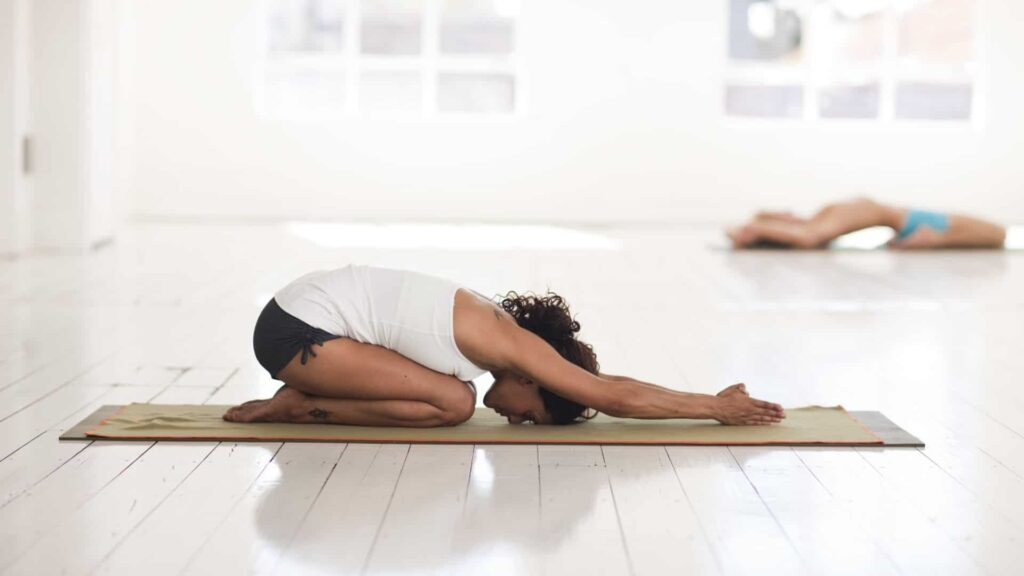
Yoga and mind-body practices
Incorporating yoga and mind-body practices into your routine, focusing on breathing, stretching, and relaxation techniques, can help reduce stress and tension in the body.
Prenatal yoga is a safe option for pregnant women, while postpartum yoga offers mental health benefits like alleviating pressure and aches in the back and hips. Additionally, studies have shown that practicing yoga can help alleviate symptoms of postpartum depression.
Supportive devices
Maternity pillows, such as wedges or C-shaped ones, are specifically designed to provide support during pregnancy and postpartum recovery.
Sitting on a comfortable chair and using supportive cushions or pillows help reduce discomfort by taking pressure off the lower back when lying down or sitting up breastfeeding the baby.
Using a baby sling or wrap to carry the baby around will also help reduce back pain.
Wear comfortable clothing and footwear.
When it comes to clothing and footwear, wearing comfortable, loose-fitting clothes that do not put pressure on the abdomen or lower back is recommended. Wearing supportive shoes with good arch support can also help alleviate back pain.
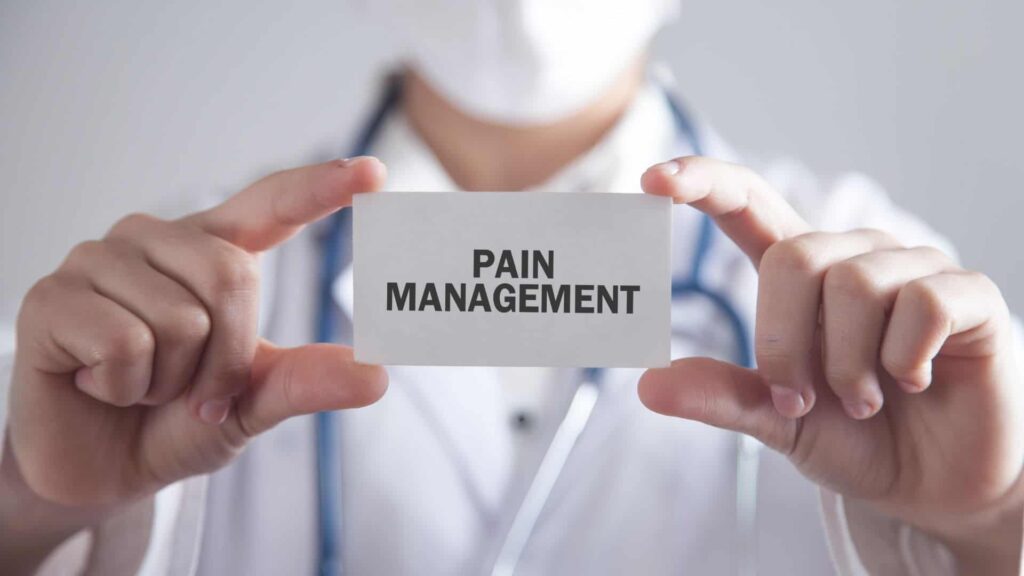
Medications and pain management for postpartum back pain
There are various options for pain management, including over-the-counter and prescription medications, chiropractic care, and physical therapy.
Over-the-Counter Pain Relief
For women experiencing postpartum back pain, over-the-counter pain relief medications such as acetaminophen and ibuprofen can help alleviate discomfort caused by muscle strains, inflammation, and other injuries.
However, it is essential to consult with a healthcare professional before taking any medication while breastfeeding or if there are concerns about potential interactions with your other medications.
Prescription medications
Painkillers such as opioids may provide relief, but it’s important to acknowledge their potential risks and side effects.
Depending on individual needs and preferences, healthcare providers may recommend alternative options or combination therapies.
Women should communicate openly with their healthcare providers about any discomfort they are experiencing to receive appropriate treatment and support.
Chiropractic care
This non-invasive treatment involves spinal adjustments that can help with pelvic alignment, alleviating pressure on the lower back area. If you’re experiencing joint or shoulder pain after pregnancy, chiropractic care may be a great option for you.
It’s important to note that while research on this subject is limited, those suffering from pregnancy-related back pain have reported positive results from seeking chiropractic treatment in their recovery process.
Strengthening your core and pelvic floor muscles
Incorporating gentle abdominal exercises like diaphragmatic breathing, modified crunches or planks into your routine can help rebuild strength without putting too much stress on already-tired muscles.
Strengthening exercises targeting core muscles will also aid in regaining stability and alleviating discomfort, making simple tasks like carrying groceries or pushing a stroller more manageable without experiencing pain.
Practicing pelvic floor exercises like Kegels or working with a physical therapist can significantly improve muscle tone, stability, and function.
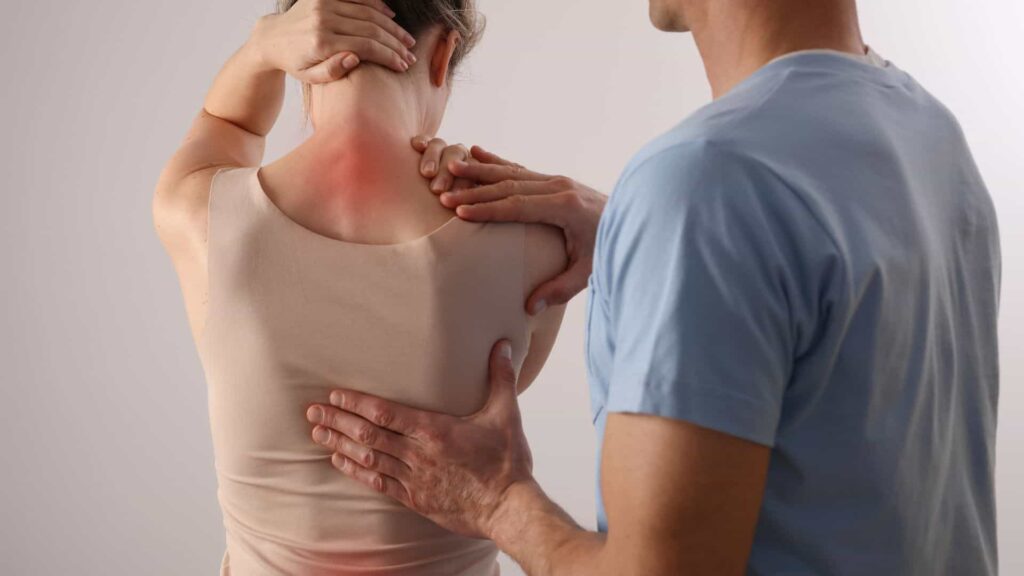
Physical therapy for postpartum back pain
Physical therapy can be an effective treatment option for postpartum back pain, with techniques such as exercises and pelvic floor therapy.
Working with a physical therapist for postpartum back pain
Physiotherapy for postpartum back pain involves manual therapy techniques and exercise programs that help with muscle strength, flexibility, and alignment.
Your physical therapist will conduct an assessment to identify the root cause of your pain and develop a personalized treatment plan tailored to your specific needs.
Physiotherapy effectively treats many postnatal health issues, such as lower back pain, knee pain, and pelvic pain caused by diastasis recti or pelvic floor disorders.
As detailed in the blog outline, physiotherapy intervention combined with self-care and proper body mechanics practices from home can effectively alleviate discomfort experienced after childbirth.
Pelvic floor therapy
Pelvic floor physical therapy focuses on the pelvic muscles, which can become injured during pregnancy and childbirth. A physical therapist can help you alleviate discomfort and pain through pelvic floor exercises and other techniques.
In addition to helping with back pain relief, pelvic floor therapy has been shown to benefit women suffering from urinary incontinence or prolapse – two common issues that arise after giving birth.
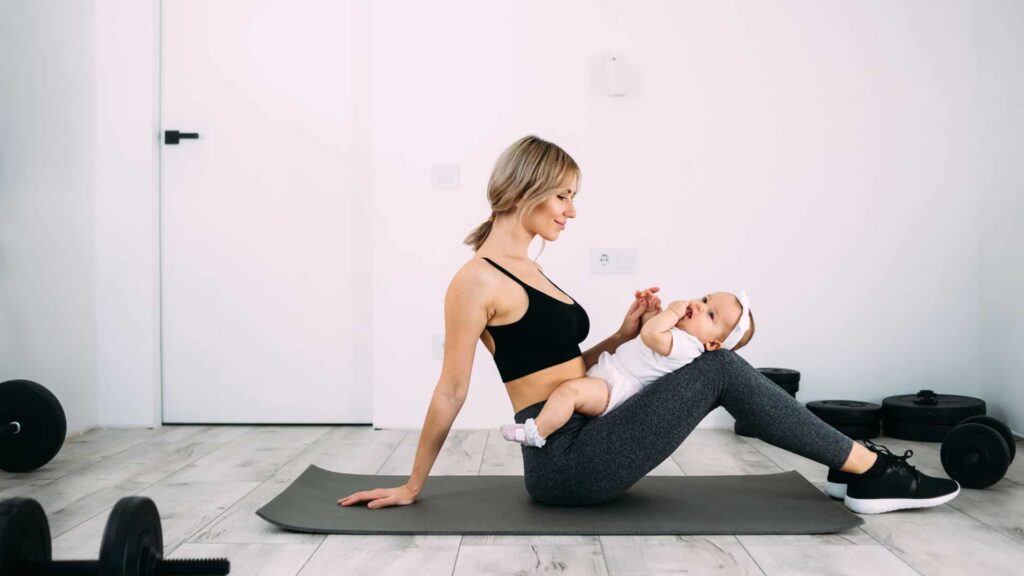
Techniques and exercises
The right techniques and exercises can help alleviate postpartum back pain. Here are some techniques your physiotherapist can help you get started.
1. Strength training: Strategic strength training is crucial for helping you regain your core strength and stability, which in turn can alleviate postpartum back pain. Your physical therapist can create a specialized exercise plan tailored to your specific needs.
2. Proper body mechanics and posture improvement: Maintaining proper body mechanics and posture during everyday activities like lifting, carrying, and sitting can help reduce the strain on your back muscles.
3. Muscle spasm treatment: A massage, heating pad or hot water bottle use over the affected area can relax your muscles and provide quick relief from muscle spasms.
4. Gentle stretching: Physiotherapists can teach stretches that target the affected muscles to help release tension, increase flexibility, and improve mobility in the lower back region.
5. Low-impact exercises: Physiotherapists can suggest appropriate low-impact exercises such as walking, swimming or yoga to stimulate blood flow to the spine’s soft tissues while reducing pressure on it.
6. Core workouts for postpartum women: Better strengthening of core muscles through exercise routines can prevent further injury leading to chronic back pain.
7. Balance exercises for improved posture and stability: Women suffering from postpartum back pain due to weak hip or abdominal muscles could consider doing balance exercises like standing on one leg or using a wobble board; these will also offer more support for better posture maintenance.
Incorporating these techniques into a daily routine with guidance from a physiotherapist could certainly improve their quality of life, leading to a faster recovery while balancing your new parenting role at home!
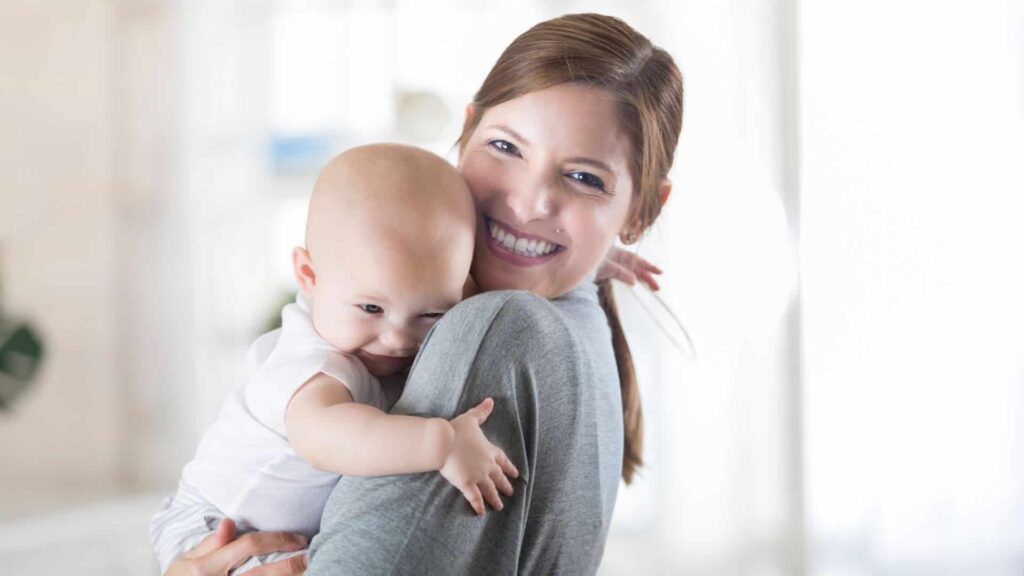
Overcoming Postpartum Back Pain for a Healthier Mom-Life Balance
Postpartum back pain is common for new moms, but it doesn’t have to be a long-term problem. Addressing the specific causes of your pain and taking steps like regular exercise, good posture when holding your baby, reaching out to other support systems and seeking medical attention if necessary can help reduce the chronicity of the problem.
With patience and perseverance, you can enjoy life with your little one while also prioritizing your physical health.
Ready to Take Control of Your Postpartum Back Pain?
Don’t let postpartum back pain hold you back from enjoying motherhood to the fullest. Our expert Women’s Health Physiotherapists are here to guide you through personalized treatment plans tailored to your needs. Schedule your appointment today and take the first step towards a pain-free life with your little one. Book Your Consultation Now.

Cynthia Pathipati – Registered Physiotherapist
Cynthia Pathipati completed her bachelor’s in physiotherapy and is a qualified Registered Physiotherapist in good standing with the College of Physiotherapists of BC with more than 15 yrs of experience. She has Post-Graduate Credentials and Certifications as well as extensive knowledge experience in treating pelvic floor, orthopedic, neurological, vestibular and pain conditions.

